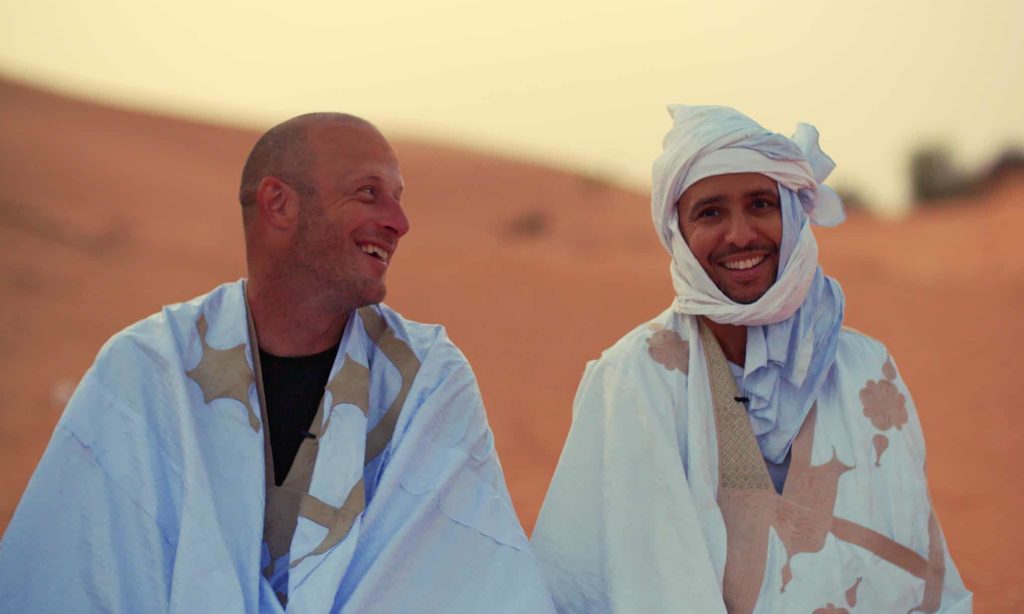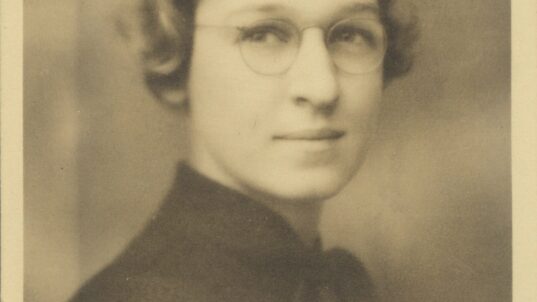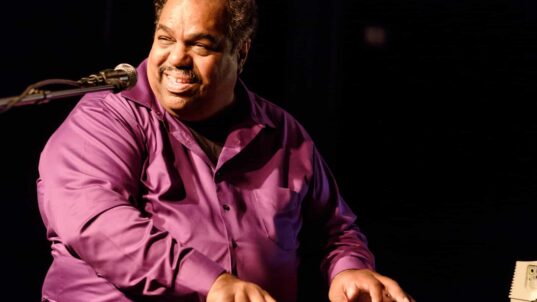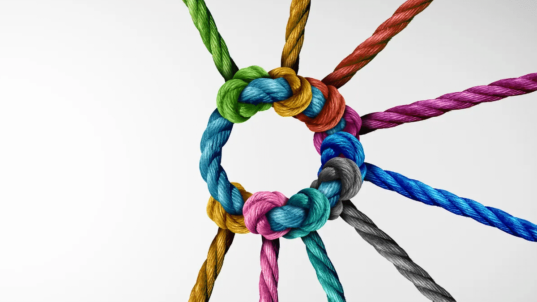
Laurence Topham via The Guardian
Who is the enemy–and, how can we be friends? By its origins, the word “enemy” means “not friends.” But can we heal these divisions? What are the possibilities for befriending our enemies?
These questions were at the heart of the exploratory conversations surrounding the documentary My Brother’s Keeper. This was the second event in our five-part film and conversation series The Human Condition(ed): Exploring our Social Connections and Disconnections. My Brother’s Keeper introduces us to former Guantanamo detainee Mohamedou Ould Salahi and his unlikely friendship with Steve Wood, a former guard. Scroll down the page to find some of the ideas that emerged from our conversations.
Our exploratory conversations are a great way to connect with others. Please join us and register for our next film and conversation event on October 21 at 1pm ET. We’ll watch the Oscar-winning short film Stutterer and we’ll continue to help each other think about the different forces that drive us apart and the possibilities for healing these divisions.
Here’s some of what our discussion participants had to say:
What are the different forces that drive us apart? What makes us “enemies”?
- Tribalism or our focus on rigid in-groups and exclusion of out-groups
- Ignorance of others outside our own group, which can lead to fear, disdain, or hate of others
- For some, ignorance prompts curiosity and wonder, a desire to know more about others and connect with them
- Misinformation creates divisions
- How we are educated or raised to hate or fear others
- Religion–when it is focused on claims of exclusivity and focused on judging outsiders
- Politics, including geopolitics, can be driven by sowing divisions–and governments can use this to manipulate people
- Losing sight of the dignity of all human persons
- Focusing on the role someone has rather than being open to the human behind it
- Focusing on the government rather than the people of a country (a government may want division with another country, but the people can connect with each other)
- Physical separation, geographical and regional divides
- Egocentrism
- Materialism
- Injustice
- Acts of violence, including war
- Trauma–our own negative experiences and legacies of trauma passed on through generations
- Fear separates and divides us–fear of others and fear of their rejection
- Prejudice, racism
- A sense of complacency and desire to maintain the status quo, so we don’t risk anything
- Transiency and hyper-mobility, which makes it hard to invest in friendships
- The price of friendship can be off-putting–if you have to be willing to take a stand or risk something for your friend
How can we heal our divisions? How can we be friends?
- Friendship is a powerful force that can help us rise above divisions of culture, race, class, etc.
- Friendship can require us to overcome our prejudices and change ourselves
- Friendship can require real sacrifice and difficult choices
- True friendship requires a level playing field with no hierarchies of power of one person over the other
- Trust and a willingness to risk is essential for true friendship (not fair-weather friends)
- Recognize and respect the inherent dignity of humanity in the other–focus on humanism
- Transcend stereotypes and characterizations of people outside of your in-group
- Be a good human being, a good person, give to others and share with them
- You need a strong moral compass (not seeking to maximize your power over others)
- Find what is common between us, such as our common desires to live in peace, to meet human our human needs, etc.
- Religion can be a uniting force, leading us to recognize the unity of all humans
- Don’t judge people by the politics of their government
- Challenge the systems or structures that dehumanize people
- Be willing to question authority when that authority is pushing for division (e.g. question our government)
- Make person-to-person connections: personal interactions can bring friendships and overcome divides
- People need to share from the head and the heart
- Be adventuresome: embody an attitude of openness to what’s new or different rather than being judgmental or rejecting
- People need to talk to each other
- Seek out contact with other peoples and cultures, which can lead us to learn more about them and to value their culture (like learning to love their food)
- Travel and foreign exchange programs can help (the good side of “globalization”)
- Shared experiences can help us bond, even when we are not in control of how we are put together with others
- Be genuine
- We need true information about each other, not misinformation (connection can’t be built on falsehoods)



